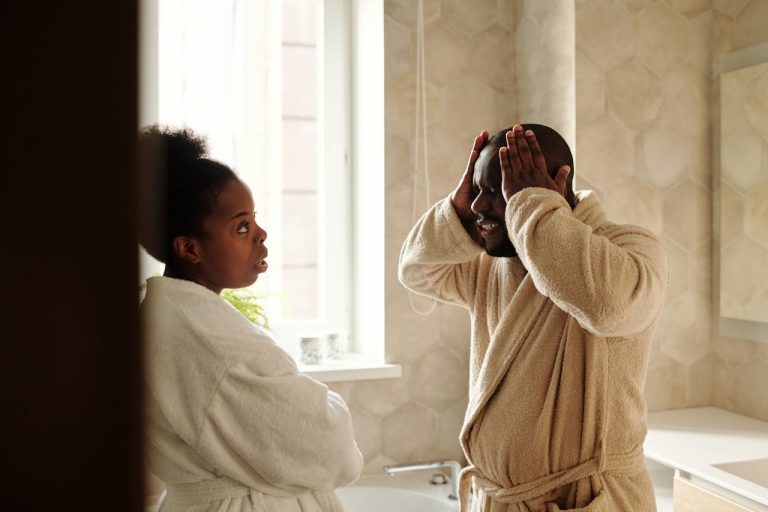
How Therapy Works

Therapy often sparks curiosity, sometimes skepticism, and plenty of misconceptions. Many people assume therapy is just talking to someone—”a glorified chat with a professional.” Sad, right? While talking is at the heart of therapy, what sets it apart from casual conversations with a friend is the science, structure, and skilled guidance behind it. This article dives into how therapy works and why it’s more than just “venting.”
How Exactly Does Therapy Work?
Sitting somewhere, listening to someone explain how therapy works, I can’t help but think, “Wow, are they even talking about the same thing I do?”
At its core, therapy is a professional relationship designed to help you identify, address, and overcome mental health challenges, life stresses, or personal struggles. A therapist is trained to provide a safe, non-judgmental space where you can explore your thoughts, emotions, and behaviors.
Unlike chatting with a friend, therapy is goal-oriented. Therapists use evidence-based techniques—approaches rooted in research and tailored to your unique needs. They’re skilled in helping you connect the dots, uncover patterns, and understand why you may feel or act a certain way. This process allows you to make informed changes to improve your life.
Here’s what makes therapy different:
- Objectivity: Your therapist isn’t involved in your daily life, giving them an unbiased perspective.
- Expertise: Therapists are trained to use proven methods like Cognitive Behavioral Therapy (CBT), Trauma-Focused CBT, or EMDR.
- Confidentiality: What you share in therapy stays in therapy (with few exceptions, like safety concerns).
- A Focus on Growth: Therapy isn’t just about expressing feelings; it’s about learning tools to manage challenges, shift perspectives, and create meaningful change.
What Are the 4 Stages of Therapy?
Therapy often follows a structured process, typically divided into four stages:
Stage 1: Engagement (Building the Relationship)
In the first stage, you and your therapist get to know each other. This is where trust is built, goals are identified, and the groundwork for the therapeutic process is laid. Think of it as creating a safe space where you feel comfortable sharing.
Stage 2: Assessment and Exploration:
During this phase, the therapist gathers information about your life, experiences, and struggles. Together, you’ll explore patterns, uncover root causes, and gain clarity about what’s contributing to your challenges.
Stage 3: Intervention and Action:
Now comes the problem-solving phase. Using tailored techniques, the therapist helps you develop strategies to address issues and cope with life’s difficulties. This might involve challenging negative thoughts, practicing new behaviors, or learning relaxation techniques.
Stage 4: Consolidation and Termination:
The final stage focuses on reviewing progress, celebrating growth, and ensuring you have the tools to maintain changes independently. Therapy may end here, but the skills you’ve learned stay with you.
This stage is very important as it helps you maintain the change that you have made throughout the therapy sessions. Like mentioned above, you are able to maintain the change independently!
What Usually Happens in Therapy?
Even as we explore what happens in therapy, it’s important to note that every therapy session is unique. In my practice, I have never had one session that was exactly like another. Every client is unique, with their own specific needs, and their sessions are tailored accordingly. However, there’s a general flow to what you can expect:
- The Start: Sessions often begin with a check-in. Your therapist may ask, “How have you been feeling?” or “What’s been on your mind?” This sets the tone for the session.
- Exploration: Depending on your needs, you might discuss specific challenges, reflect on past experiences, or explore patterns in your thoughts and behaviors. The therapist will ask questions or provide insights to help you see things from a new perspective.
- Skill-Building: Many therapists incorporate practical exercises or tools. For example, you might learn relaxation techniques, communication strategies, or journaling prompts to use between sessions.
- Wrapping Up: Towards the end of the session, the therapist often summarizes key points and checks in about your progress. They may assign “homework,” like trying a new strategy or reflecting on a particular issue.
Therapy is collaborative—it’s not just the therapist doing the work. Your active participation is what makes it effective!
Thinking of looking for a therapist? Therapyke.com is a nice place to start. Therapy is about healing and unlocking your potential and creating a life you truly deserve. Reach out to us through our Contact Page!
How Do You Know If Therapy Is Working?
One of the most rewarding aspects of therapy is noticing progress, even if it’s gradual. Signs that therapy is working include:
Improved Awareness: You start to understand your emotions, triggers, and behaviors more clearly.
Positive Changes: You notice shifts in your thinking, relationships, or habits. For example, you might feel more confident setting boundaries or handling stress.
A Sense of Hope: Therapists are givers of hope. Therapy often brings renewed hope, showing you that change is possible.
New Skills: You’re better equipped to manage challenges and cope with life’s ups and downs.
Sometimes, therapy progress is subtle—like feeling less overwhelmed by a problem that used to consume you. Other times, it’s transformative, bringing breakthroughs that reshape your life. Regular check-ins with your therapist help track progress and adjust strategies as needed.
I often get this question from potential clients: “Muthoni, when will I start feeling better?” or “How long will it take for me to recover from something like depression?” My short answer is, “Give therapy time.” Healing is a process, not a race, and progress often comes in small, meaningful steps that build over time.
Why Therapy Isn’t Just Talking to a Friend
Friends are invaluable—they listen, support, and cheer us on. But therapy offers something different: professional guidance. Here’s why therapy goes beyond a friendly chat:
No Bias: Friends often want to protect your feelings, which might lead to sugar-coated advice. Therapists provide constructive feedback, even when it’s hard to hear.
Structured Approach: Therapists have tools and techniques that friends lack, making therapy a more effective solution for deep-seated issues.
Consistent Support: Unlike a friend, your therapist’s focus is entirely on your growth, without the distractions of their own life. For instance, when working with a client, I ensure that I remain fully focused and do not let distractions from my own life interfere, no matter how challenging they may be.
Therapy in a Changing World
As mental health awareness grows, more people are recognizing that therapy is a powerful tool—not just for crises but for personal growth. It’s not about being “broken” or “weak.” It’s about learning to thrive, even in the face of life’s challenges.
Ready to take the first step? Therapyke.com is here to help. Whether you’re facing stress, anxiety, or just need guidance, our professional therapists are ready to support you. Visit our Contact Page to book a session today!
Therapy is not just talking; it’s transformation. And you deserve to experience it.



